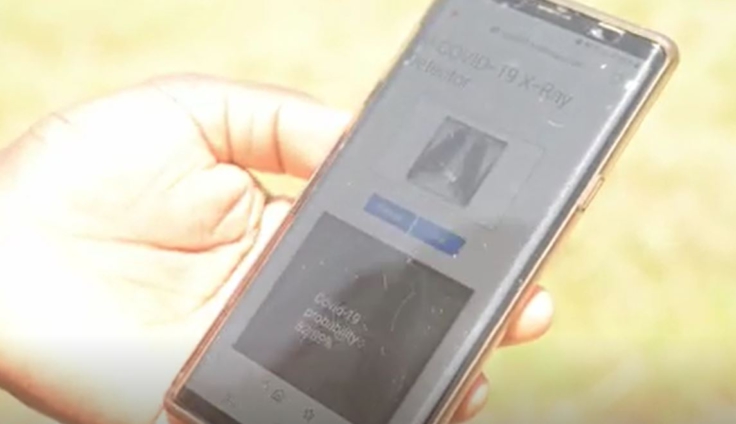Pneumonia as a result of COVID-19 occurs when parts of the lung fuse and collapse.
The virus damages the surface area in the organ where oxygen transfer usually takes place.
When the surface area shrinks, breathing then becomes difficult, and the damage to the lungs can only be detected with an X-ray or CT scan.
Fortunately, an artificial intelligence developed by a Ghanaian scientist is able to analyze chest X-ray or CT scan images to determine lung abnormalities.
On Tech Thursday, Luv FM’s Kwasi Debrah speaks with Dr Mark Amo-Boateng of the University of Energy and Natural Resources.
DISCLAIMER: The Views, Comments, Opinions, Contributions and Statements made by Readers and Contributors on this platform do not necessarily represent the views or policy of Multimedia Group Limited.
Latest Stories
-
Revamping Ghana’s Economy: Klutse Kudomor advocates for fishing and agribusiness reforms
3 minutes -
Re-collation: EC declares results in 3 disputed constituencies, suspends one
6 minutes -
Amerado shines at 2nd edition of ‘My Motherland’ Concert in Ejisu
12 minutes -
JOY FM’s 90s Jam draws mammoth crowd with unmatched entertainment
16 minutes -
Daily Insights for CEOs: The power of strategic networking for CEOs
46 minutes -
Court sets Jan. 6 to rule on NPP’s application to set aside injunction against Akwatia MP-elect
1 hour -
GPL 2024/25: Bechem United ease past leaders Heart of Lions
2 hours -
Edem Agbana expresses readiness to begin work as MP after completing registration
3 hours -
Katamanto fire: Gov’t must reconstruct the market, not the traders – Abuakwa South MP-elect
3 hours -
High Church of Africa inaugurates mineral water factory on 2nd anniversary
3 hours -
Ablekuma North results collation suspended over another disagreement
3 hours -
Kwakye Ofosu says 10 Heads of State will attend Mahama’s inauguration
4 hours -
Rwanda-backed rebels seize key town in DR Congo
4 hours -
Nominate Alban Bagbin as Speaker of 9th Parliament – Mahama tells NDC caucus
5 hours -
Russian newspaper says its reporter killed by Ukraine drone strike
6 hours

